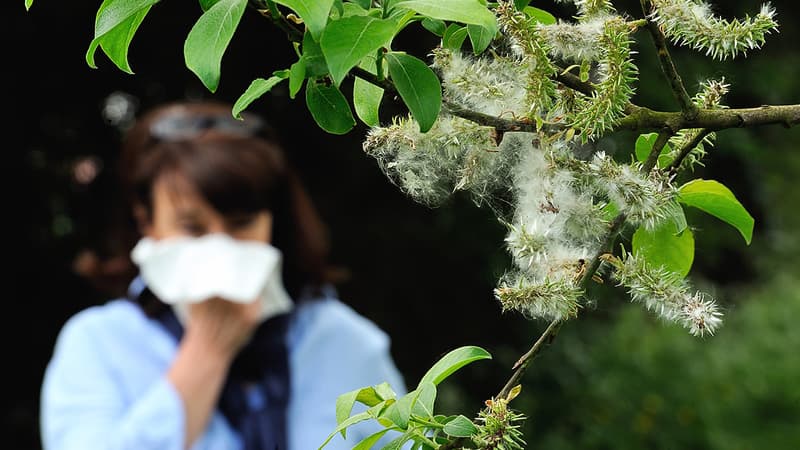The itchy throat, the itchy nose: without a doubt, the pollen is there. While almost all of France is on red alert, according to a latest bulletin published on Friday by the National Network for Aerobiological Surveillance (RNSA), many French people have suffered from these inconveniences in recent days: it is estimated that one child from the age of 9 in five and that almost a third of adults (30%) suffer from allergies to pollen, according to the Ministry of Health.
If antihistamine drugs, delivered by prescription, are useful, we can associate some good actions to be taken daily to further curb allergic symptoms.
Rinse your hair and air it
To limit the inconvenience associated with pollen, the Superior Council of Public Health recommends rinse your hair every night before going to bed, during periods of allergen peaks, because many pollens come and settle there.
it is also better ventilate at least 10 minutes a day your interior, rather before or after sunset, again to renew the air in your room and evacuate accumulated pollen.
It is also recommendedavoid smoking and the use of certain home maintenance chemicals or home fragrancesthat irritate the respiratory tract and favor allergic reactions.
Avoid drying clothes outdoors
During your spring or summer outings, the best thing to do isavoiding activities that cause high exposure to pollen, such as yard maintenance and mowing the lawn. If, despite your allergies, you do not want to leave your garden fallow, you can equip yourself with glasses and a protective mask to limit the symptoms.
Always concerning the garden, also avoid planting plant species that emit allergenic pollen (olive trees, birches, cypresses, hazelnuts, etc.). Also be careful with do not dry clothes outside. Pollen easily sticks to damp fabrics and remains difficult to dislodge.
Finally, when traveling by car, it is better to resist the temptation to roll down the window despite the good weather. Once again, pollen could become lodged in the cabin and cause an allergic reaction.
All these recommendations are especially valid in the case of allergic peaks, as is the case at the end of May, but also during episodes of strong air pollution that favor allergies.
Source: BFM TV


